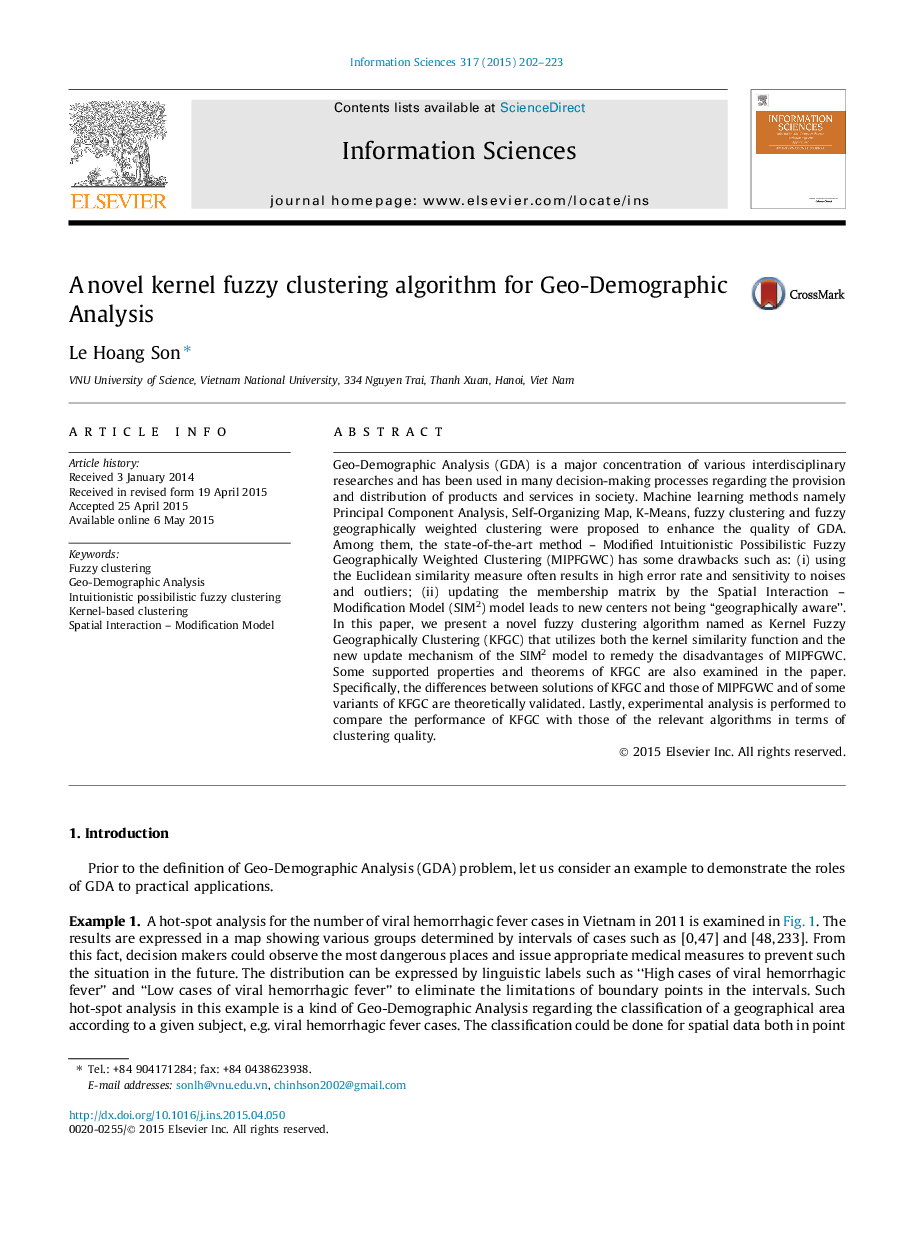| کد مقاله | کد نشریه | سال انتشار | مقاله انگلیسی | نسخه تمام متن |
|---|---|---|---|---|
| 391506 | 661845 | 2015 | 22 صفحه PDF | دانلود رایگان |
• We proposed a novel kernel-based fuzzy clustering for Geo-Demographic Analysis.
• It relied on Gaussian kernel function, updated elements and standardized weights.
• The algorithm was both theoretical and experimental validated.
• Its clustering quality was better than those of other relevant algorithms.
• Some properties of solutions were examined.
Geo-Demographic Analysis (GDA) is a major concentration of various interdisciplinary researches and has been used in many decision-making processes regarding the provision and distribution of products and services in society. Machine learning methods namely Principal Component Analysis, Self-Organizing Map, K-Means, fuzzy clustering and fuzzy geographically weighted clustering were proposed to enhance the quality of GDA. Among them, the state-of-the-art method – Modified Intuitionistic Possibilistic Fuzzy Geographically Weighted Clustering (MIPFGWC) has some drawbacks such as: (i) using the Euclidean similarity measure often results in high error rate and sensitivity to noises and outliers; (ii) updating the membership matrix by the Spatial Interaction – Modification Model (SIM2) model leads to new centers not being “geographically aware”. In this paper, we present a novel fuzzy clustering algorithm named as Kernel Fuzzy Geographically Clustering (KFGC) that utilizes both the kernel similarity function and the new update mechanism of the SIM2 model to remedy the disadvantages of MIPFGWC. Some supported properties and theorems of KFGC are also examined in the paper. Specifically, the differences between solutions of KFGC and those of MIPFGWC and of some variants of KFGC are theoretically validated. Lastly, experimental analysis is performed to compare the performance of KFGC with those of the relevant algorithms in terms of clustering quality.
Journal: Information Sciences - Volume 317, 1 October 2015, Pages 202–223
